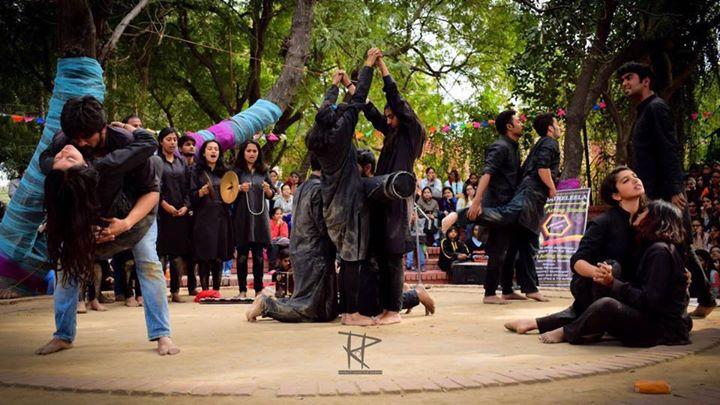February 2020
Hum Theatre Karte Hai

They say that pain creates good art. That’s probably why there’s so much stuff one can find on unrequited love or heart break. Needless to say that to live in a country that doesn’t love you back, is pretty heartbreaking – but at least we’ve got tons of content to feed the next generation of plays.
Meet Zeeshan, hailing from Jamshedpur, Jharkhand, a subscriber of the aforementioned school of thought. So when  Brecht said”In the dark times. Will there also be singing? Yes, there will also be singing. About the dark times.” A Zeeshan, generations away, was slowly nodding in agreement. Currently studying at Jamia Milia Islamia, he affirms that to be a theatre maker in the current scenario is pretty empowering.
Brecht said”In the dark times. Will there also be singing? Yes, there will also be singing. About the dark times.” A Zeeshan, generations away, was slowly nodding in agreement. Currently studying at Jamia Milia Islamia, he affirms that to be a theatre maker in the current scenario is pretty empowering.
“Theatre for me is pure love… or you could say, passion. It is redemption for me, from the world.”
Though he had been involved in the making of plays since childhood, Zeeshan discovered how relevant it was for him to keep creating theatre once he began studying political science in college. On staging Panchlight by Phanishwar Nath Renu in college, he realized that theatre is all he wants to do for the rest of his life.
This 25 year old dramebaaz believes that theatre enables us to have to a whole new outlook about things that surround us. “It provides an opportunity to contemplate. It allows us to question the highest authority.” And while the idea of questioning is very important for Zeeshan, he knows that change is not a overnight thing, but it is something he is willing to work for. Thus, as an artist it became imperative for him to create art with a purpose.
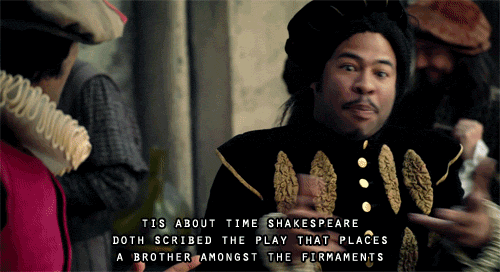 As a product of this thinking, he directed Qafas udaas hai, an adaptation of Othello, the moor of Venice
As a product of this thinking, he directed Qafas udaas hai, an adaptation of Othello, the moor of Venice
The play is set in dystopian delhi when the NRC is implemented and the downtrodden amongst the Muslims were thrown i n detention camps. However, one such group fails to find a detention camp and is elated when they finally receive one to shield themselves from the winter. Amidst the politically charged environment, there is a love story which blossoms and eventually withers.
n detention camps. However, one such group fails to find a detention camp and is elated when they finally receive one to shield themselves from the winter. Amidst the politically charged environment, there is a love story which blossoms and eventually withers.
Qafas udaas hai was staged for Shakespeare society of India, National Drama competition. For Zeeshan more than the prize and the previous achievements at this hallowed event, it was this play and its acclaimed performance was necessary.
When asked about what was next – “To be very honest, I’ve not decided yet. I want to work towards something which will force people to think, to read, to ask more questions, so a new discourse can be initiated.”
-Pranjal Sharma
May 2019
Run Cabaret Run!
 Why theatre? This question opens up so many fascinating stories. Stories about the struggle, the achievements and commitments. One of these stories happens to be about the foundation of Runaway Cabaret, a Bangalore based theatre group or rather “A bunch of theatre music and film nerds who were drawn to each other by the idea of creating things.”
Why theatre? This question opens up so many fascinating stories. Stories about the struggle, the achievements and commitments. One of these stories happens to be about the foundation of Runaway Cabaret, a Bangalore based theatre group or rather “A bunch of theatre music and film nerds who were drawn to each other by the idea of creating things.”
Founded by Ashmita Chhabria and her partner in crime, Aahan Desai, The Runaway Cabaret is a result of their passion for theatre which had its roots set within their childhood. “I loved the idea of being someone outside of yourself”, says Ashmita, who had the privilege of being acquainted with a wide variety of theatre at a very tender age, doing a fair share of “Jesus plays” in school and moving onto musicals and other contemporary forms. With her childhood filled with drama, music and dance classes she began developing her hobbies. Fostering a love for writing stories and sketching she realised that she could mash all her hobbies into a career and as soon as her friend Aahan Desai came to her with a script, she knew they had to create a space for the kind of theatre they personally enjoyed. Thus began the journey of Runaway Cabaret.
Aahan too had been studying drama for years and had been experimenting with both Indian and Western styles of acting. The two met in college and realized that a lot of the theatre that they were watching was trying to imitate film, thereby not exploiting its quality as a live art form. So they decided to exploit it themselves. During the last few months of college with everyone obsessing over GPA’s these two theatrewallas searched for like-minded enthu-cutlets in every nook and cranny of every discipline offered at their university and out came a team. In this team were some who had never watched play, some who had been acting for years, and some who had no idea what they were getting into. With a firm belief in the statement that “There are no bad actors, only bad directors,” the two continued building the play, making the actors learn their lines individually. None of the actors knew the script in its entirety until it happened in front of them at the rehearsal – a process that seemed to elicit organic reactions.
Ashmita’s and Aahan’s directorial debut The Gentleman’s Hourglass is the story of a mad mind creating absurd words and extraordinary characters, all in hopes of putting to rest his biggest ‘what if?’ “The play was directed with a focus on audience reception. 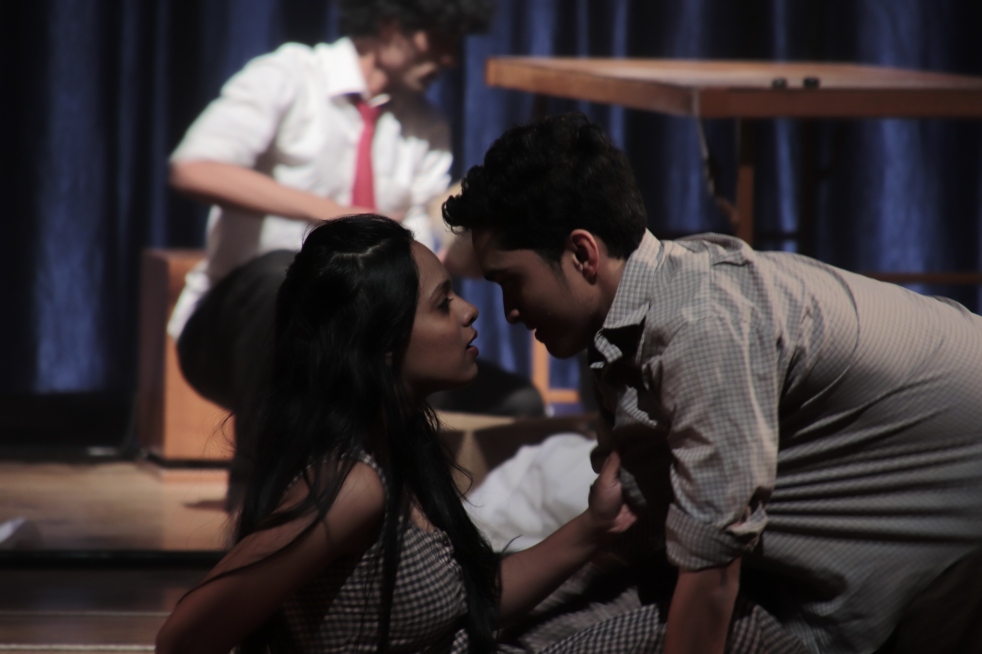 Depending on where the audience members sat they witnessed a different undercurrent.” The complexities of the play involved multiple actions occurring at the same time, allowing the audience to choose what they wished to see. Although it was performed on a Wednesday night at Rangashankara, it was received by a full house. The Runaway Cabaret for its first play received a standing ovation and many of the audience members stayed to talk to the cast and crew. Having received such an unexpected response for their very first play, left the team stunned.
Depending on where the audience members sat they witnessed a different undercurrent.” The complexities of the play involved multiple actions occurring at the same time, allowing the audience to choose what they wished to see. Although it was performed on a Wednesday night at Rangashankara, it was received by a full house. The Runaway Cabaret for its first play received a standing ovation and many of the audience members stayed to talk to the cast and crew. Having received such an unexpected response for their very first play, left the team stunned.
On being asked about the origin of the name of the theatre group Ashmita said “To me, I was always running away from real life when I went to rehearsals or to watch a play. It always seemed like this alternate reality that you could choose to live in for a while. And the kind of performances I enjoyed were extremely extravagant and avant-garde. Thus, Runaway Cabaret.” For both Aahan and Ashmita the Runaway Cabaret means a lot more than just a theatre group,
“It’s all about creating an active community of people who are passionate about performance and breaking the traditionally set rules that make up most of what theatre means to us at the moment.”
With the same vision for the future of Runaway Cabaret, together the co-founders have managed to overcome all the barriers in their path. Financing being a primary concern, “Let’s be real. Everyone says it. There is no money in theatre. For us starting off we had a budget of zero. After a lot of pushing and shoving we managed to get a hall and enough money to put up the play.”
In addition to that, they also wish to create live performances and experiences in spaces that aren’t necessarily performance oriented. The whole journey of Runaway Cabaret up until now has made both of the co-founders see how everything that they have learned from theatre can translate into other fields of live entertainment.
For this year, they’ve already got a few more shows planned, keep an eye out for them Bangalore, its talent you don’t want to miss!
– Sameeksha Phadke
July 2018
Mallika E Theatre

I haven’t yet had a chance to see Mallika Singh perform on stage. But that’s entirely on me and definitely not on her lack of proclivity. Because at 22, Mallika is easily one of the most prolific young theatremakers I’ve come across. Since her foray into professional theatre at just 16, she has been a part of multiple exciting productions- both on and off stage- most recently Aadyam’s Detective 9211, worked with tons of talented artists, explored varied schools of theatre and basically kept busy being amazing.
I did, however, speak to her for over an hour and following is an account of my conversation with this tiny, unassuming human who is making waves, packing a punch and really every other such idiom you can think of.
“I was sitting in Prithvi Café, just writing something, when a friend’s mom saw me and asked if I’d like to do theatre. She was acting in a play at the time and introduced me to Trishala (Patel). I used to go watch plays there every now and then but that was my first time seeing the green rooms, the backstage. It was all very thrilling. The play they were working on was already cast so they let me help backstage.” That was just the beginning of an association full of learning and opportunities. Not only was she introduced to the ropes of theatre production, she went on to act in all the plays she had done backstage for and then some.
But if you are beginning to think her story with theatre was merely a lucky meet-cute, an entry from Mallika’s seventh-grade notebook will tell you otherwise- “I want to be a writer, a singer, a performer when I grow up”, it says. As she vividly recounts demanding the attention of friends and family at her nani’s house, it is clear the performing keeda had been present all her life.
Fueling it further was an ‘unconventional’ education that encouraged creativity and imagination. “When Tridha happened, it really opened me up to the arts. We had theatre studies, history of theatre and entire blocks allotted to building productions from scratch. We’d rehearse for a whole month and even make our own props in carpentry and sew our costumes. I still find myself using a lot of things I learned in school.”
Theatre makes her happy. That in itself was enough to convince Mallika to circumvent societal expectations and pave her own path. Completing her junior college and graduation via correspondence, she carried on with her work on and off the stage with full conviction.
‘Most people wanting to do theatre should begin with introspecting their ‘whys’-why they want to do theatre. If that isn’t clear it can be very draining mentally and financially. The returns are more often than not intangible- the satisfaction after month-long rehearsals, a good show or even the restless after not so good a show. You can’t do it with the idea that mujhe paise milne waale hai ya mujhe koi notice karke filmo mai cast kar lega.’
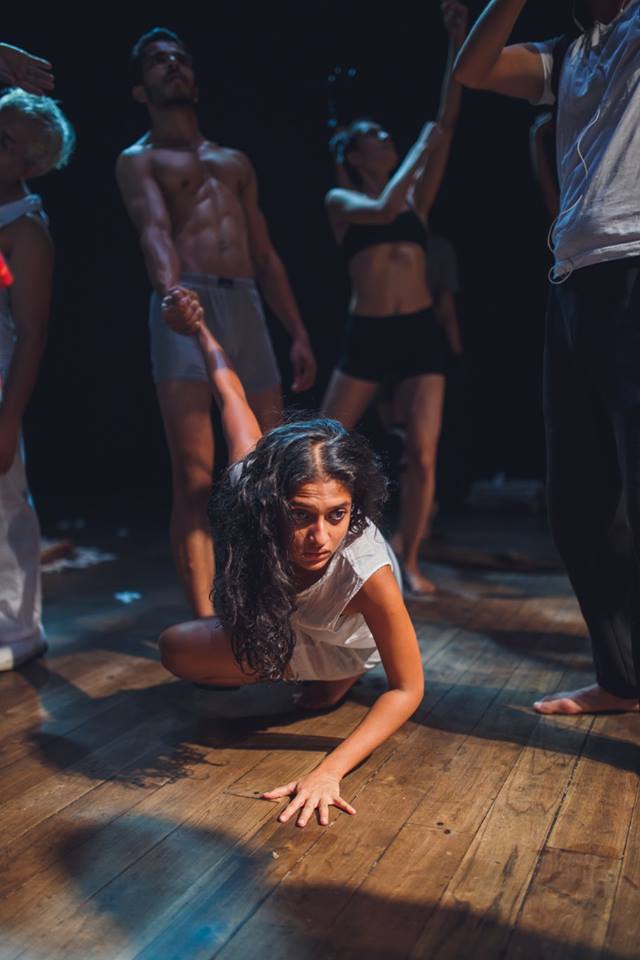
It is the creative satisfaction of the stage that keeps her attracted. In fact, she sees herself doing theatre ‘forevahh’. And though Mallika is one of the lucky few to have parents supportive of her and her offbeat career choices, by no means did that make her feel entitled or complacent. “I have been able to sustain on my own, pay my own bills, for some time now. If I’ve been given the freedom to pursue my calling, I see it as my responsibility to be wise with my finances and be independent.”
Although having a financially feasible career in theatre is never a piece of cake, Mallika has held her own by branching out to corporate shows, teaching and directing for schools, designing even, and of course web series and short films.
“I had a block about being on camera for the longest time. I would literally try to escape from auditions. As a performer, I still don’t enjoy it. It’s a different experience and skill altogether and not really in line with what I am looking to learn and explore.”
And she is, indeed, exploring. Writing outside of Prithvi that fateful day wasn’t any isolated incident. The girl also writes y’all. Growing up she would write poems and short stories and had even worked on a story that someday she hopes to turn into a novel. Currently on the second draft of a play that’s been a six-year-long labour of love, does she perhaps intend on directing it as well? “I would love to but I’d require tons of guidance. My process of writing involves visualizing so I do have a sense of what a scene would look like but it’s the stringing along of everything that I’d require help with.”
The first time Mallika Singh stepped on stage outside of school, she played the tail of a dragon. Covered under a costume dragon, she was happy her friends were there to watch. The next time around she was caught unaware and had to step in at the last moment in a speaking role. Even as she narrates this I find her whispering how she was worried she may have been too soft.

Years and many a play later Mallika’s attraction to theatre remains the same, simple reason. It makes her happy. “I am simply following my heart. I like investing the time, rehearsing, learning, reading new texts, sitting with friends listening to new music. For instance, I was introduced to the world of Punjabi folk and Sufi music while working on ‘Ishq Aaha’, a musical play, that has shows coming up in PrithviTheatre on the 24th and 25th of July.”
https://www.facebook.com/events/341928113012693/?ti=cl
And if you are anything like me, this is your chance to finally watch Mallika do what she loves best. Or if you’ve already caught any of her many plays, you’ll know what I am talking about. For every time I hear someone say theatre survives because of its people, I’ll be thinking of people like Mallika.
– Esha Patil
May 2018
Where art meets the heart!

Youngsters taking charge and pushing through barriers seems to be the need of the hour and Amrith Jayan, Mohammed Lehry and Tarun Kapoor are no different! Being the founders of Dot Theatre, their main aim was to build a community that allows the audience not just to enjoy the performances but to take something back with them.
Amrith,18, Mohammed, 21 and Tarun, 21, believe that there is a need to bring quality theatre to Coimbatore and convert the theatre space from just a recreational activity to an intellectual space. Growing up in the city itself, they have been exposed to many theatre festivals and plays when they were young but the theatre scene in has currently been dwindling and they have decided to take matters into their own hands.

Their first staged piece was Men and Dog, a play inspired by a one-act play by Indira Parthasarathy called Man, Woman and Dog that talked about popular ideologies and its effects on people and was performed by Amrith, Mohammed and Tarun. The trio not only acted but carried out production for the show.

One of the major obstacles they faced was the lookout for an appropriate venue. Kasturi Srinivasan Trust Auditorium is where their search stopped, a 200-seater, with no separate booth for light or sound, and yet Dot remained undeterred. They maximised their use of natural light and brought in innovative mechanisms like an embroidery ring with lights that were used as props on stage. The other big obstacle was getting the word out. They wanted to encourage youngsters to understand and appreciate theatre and to achieve that they took to a heavy social media approach. The response was overwhelming and revealing at the same time. Amrith says he had people asking him “What is a play?” and it reconfirmed Dot’s notion that there is a necessity to bring back theatre to the city. The show was a houseful and they are glad that they have achieved the initial push for building the community.
When questioned on future plans, Amrith says that Dot plans to do original productions as well as bring in other plays from different cities to Coimbatore. The aim is to reach a point where Dot brings in a piece of work every month. So, theatre peeps, if you want to explore theatre in Coimbatore, you know exactly who to go to. They promise all the help and the best ‘masala dosai’ and ‘kaapi’ in town.
Theatre Scouts Honour.
A quirky and energetic fun child completely in awe of the magic of theatre and sometimes sidetracked by K-pop!
THE WORLD IS YOUR OYSTER
Why do you do theatre, I ask?
He simply answered, “storytelling”.
What about theatre do you like the most, I ask?
“Every performance is different. It is always unique.”
This 20 year old, young lean boy had a perspective about theatre, that was extremely
 fascinating. Adi Shastri, lighting designer, sound operator, an aspiring actor and director thinks this world is his oyster, and he sure is damn right! Born and brought up in Mumbai, Adi was introduced to theatre by accident, but he stayed by choice. At 15, he was bored at home, and wanted to do something worthwhile in life, who knew it would lead him to theatre, and he would find his calling.
fascinating. Adi Shastri, lighting designer, sound operator, an aspiring actor and director thinks this world is his oyster, and he sure is damn right! Born and brought up in Mumbai, Adi was introduced to theatre by accident, but he stayed by choice. At 15, he was bored at home, and wanted to do something worthwhile in life, who knew it would lead him to theatre, and he would find his calling.
Adi started lighting only 2 years back, but in his light designing career, he has already designed lights for 10 productions and it’s only the beginning. His first play, ‘Lihaaf’ by Tricycle Productions, received acclaim for the lights. He has the ability to create characters through his lights.
Having seen Adi develop as a lighting designer, I wonder how he sees his growth curve. Surprisingly, what follows is not what I was expecting. As he continues to light more and more, he finds it more difficult to design. He explains, “When I started off, it was difficult for me to translate my thoughts on paper, but now, as I have learnt more techniques and have gained more experience, that comes naturally to me. The problem is, I can’t stop experimenting with lights. And, of course I overthink it!”
While we both laugh at the universal problem of overthinking, I realize what he means. Adi brings a level of maturity through his lighting, and you would never guess a 20 year old has lit the plays he has. From The Company Theatre’s “This is all there is, when there is all this” to the plays like, “Dead Poets Society”, “The Show”, Adi has a variety of plays under his belt. The calmness and the warmth that he brings to the stage is absolutely the opposite of what he is, if you ever bump into him backstage before a show! But, I am sure it is nerve-wrecking to be the youngest in the team.
What I love most about this young light designer though, is the balance he strives to achieve between work and play. While, this bubbly, energetic kid brings life into any room or party he walks into, he is the same kid that isolates himself, brings clarity and reason in a rehearsal room. As he points out about the stage and the rehearsal rooms –
“You can’t lie here. Being true to yourself is the only thing that will keep you going.”
It is inspiring to see such an enthu-cutlet, aiming for the stars. “I want to do everything I can”, he exclaims. And he very well is on his way to achieve that, already at his age. In his 6 years of theatre life (Yes, envious right?), he has tried his hands at acting, has trained children in basics of lighting, aspires to become a director and wants to try his hand at sound designing too!
Theatre sahi cheez hai, he thinks aloud. Sahi toh hai, and people like Adi are making theatre cool. Can’t wait to watch his next production!
– Srishti Ray
NIRMITI CHA JAADU!
Amol Salve, Monica Bankar, Pramod Kasbe and Vinod Garud found their passion as they created the theatre group – Nirmiti Rangmanch.
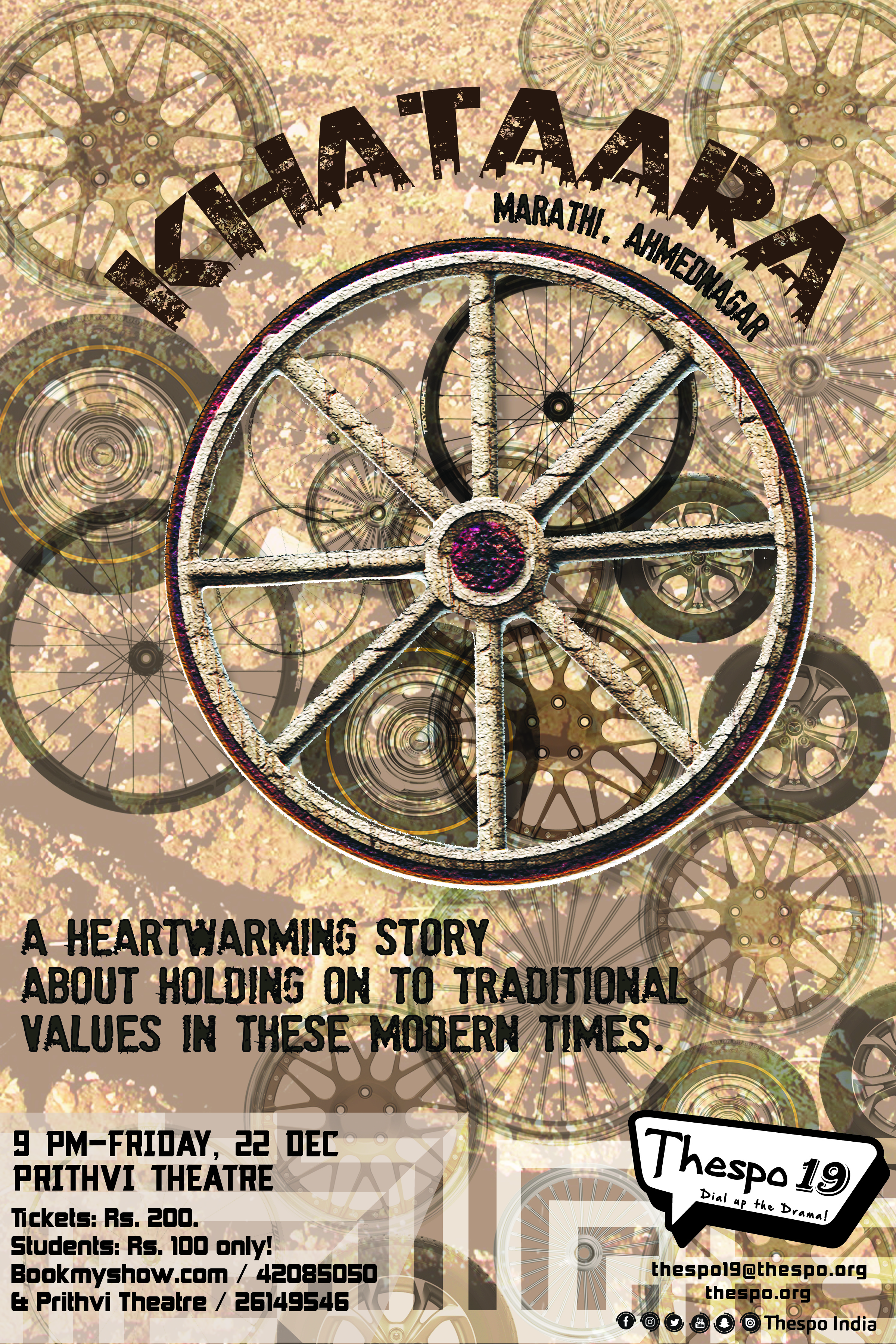 I have always been a sucker for the heartwarming, feel-good kind of stories. The kind that reaffirms your belief in the triumph of effort and sincerity. Especially when they are real life stories. So of course I had to find out all about the exceptional group of young theatre makers whose work moved the audience of Thespo 19 to happy tears and thunderous rounds of applause. The group whose play ‘Khataara’ went beyond any language and struck a chord among all our hearts with its genuine emotions.
I have always been a sucker for the heartwarming, feel-good kind of stories. The kind that reaffirms your belief in the triumph of effort and sincerity. Especially when they are real life stories. So of course I had to find out all about the exceptional group of young theatre makers whose work moved the audience of Thespo 19 to happy tears and thunderous rounds of applause. The group whose play ‘Khataara’ went beyond any language and struck a chord among all our hearts with its genuine emotions.
Their journey is inspiring and their passion for their art is evident.
“The four of us met at a play we were working on together. We had all been doing theatre for a bit by then. But something was missing, that feeling of contentment when doing our own work, exploring our own questions and discovering the answers for ourselves. That’s when we started Nirmiti Rangmanch four years back.”
Today, with twelve productions under its belt, Nirmiti is creating waves. “All our productions so far are original pieces. Something we had observed was that when depicting rural life, most existing plays found it hard to let go of stereotypes. The father would be a drunkard, beating his wife and children, the women would have no voice and so on and so forth. But that isn’t the only reality. We wanted our work to showcase the life we have observed around us growing up.”
Just as organic as the stories they wish to tell, is the process with which they work. “Among the many activities we do is something as simple as a circle we gather around in and pitch in ideas. Every one of us contributes the things or incidents that have piqued our interest and get the ball rolling from there. These are usually socially or politically relevant subjects that we see around us or read about. Once one of us begins writing it, everyone offers bits that relate to them individually: memories and experiences. So more often than not the end product maybe the words of one, but is really a figment of each one of us.”
And the members are more than just collaborators. Anyone who has had a chance to interact with them can vouch for the fact that Nirmiti is everything a good team should be. “We are all like one big family. Theatre is our blood relation. There is rarely a day that goes by when all of us don’t hang out together.”
I wonder if this close bond ever comes in the way of their professional relationship. What is the group dynamic like? “Of course we are sometimes plagued with the emotional versus practical aspects of tough decisions but we have to eventually do what is best for the team. We have a strong democracy and each opinion is given due consideration but sometimes a few of us have to take the tough call. However the pros of our relationship outweigh the cons any day.”
One thing that doesn’t fail to stand out about Nirmiti is their strong connection to their roots, the conviction with which they stay true to who they are and where they come from.
“Back home the theatre scene is not particularly developed. Beyond competitions at college and district level, there is rarely a theatre event or a show put up. The concept of doing a theatre production as its own entity only barely exists. One of the things we are really working towards is developing a more active theatre going audience here. And to get people to begin appreciating theatre irrespective of any star presence, our best bet is continue to do quality work.”
With only competitions as their basis to learn, members of the team would travel to nearby cities like Pune to catch shows of commercial theatre groups. “We soon realised there was a whole world of technicalities waiting for us to explore. We are still a far cry from understanding the nuances of lights, set design, etc.” Luckily for them, Nirmiti has always had a support system in the form of individuals who believe in the power of theatre and specially in the work that they do. “In addition to the lovely people who have nudged us along the way with their practical support, there are also a few theatre professionals, originally from Ahmednagar, who often help us and guide us with their experience. Simple things like conducting workshops to train our members and introducing us to seminal playwrights and pieces of literature have gone a long way towards opening our minds to endless possibilities.”

There are certainly exciting times ahead for Nirmiti Rangmanch. “One of our biggest goals is to create a sustainable theatre ecosystem. Our success so far has been hugely gratifying but we are not here to be a one hit wonder. When we started out we didn’t have the access to the right platform or even resources. We want to ensure that Nirmiti satisfies that very requirement for the coming generations of theatre talent in this town.”
There is a lot we can all learn from Nirmiti Rangmanch. Perseverance, humility and sincerity being just a few of those things. But what is it that keeps them going on their path? “We once had a show in Akola. Among the audience were ten blind people. What was incredible was their effortless engagement with the show. Despite not having what we thought was the primary sensory requirement for enjoying theatre, these people seemed to be grasping the very essence of the performance.
This was just one of the instances where we had realised the immense power of theatre and how much bigger it is than anyone of us. This is why we do what we do and will continue to do so.”
– Esha Patil
NAMASKAAR, SASRIAKAAL , ADAB
Theatre has always prided itself in being a medium that makes a difference, that is unafraid to speak the truth. And Delhi’s Sri Venkateswara College’s theatre group Anubhuti is no stranger to this concept. Focusing largely on street play, Anubhuti has achieved success in both providing entertainment through theatre, and making a social impact. We spoke with the President of Anubhuti, Anish Bhat, who told us more about the art of street play, the challenges that his group has faced during the year, and their well-acclaimed play, ‘A,’ that has bagged many accolades and fame since the year began.
SVC’s Anubhuti has made quite a name for itself this year and last, seamlessly winning 80% of the competitions in which they have participated, and placing in the remaining 20%. Anish Bhat, now in his third year at SVC, proudly told us that Anubhuti was revived in college when he was in his first year. This means that within a mere span of two years, the dramatics society has reached the level of veteran theatre societies, garnering recognition and respect for themselves everywhere they went.
‘A’, Anubhati’s well-acclaimed street play that has received lots of appreciation and prizes in 2017, is one that makes people question the rigorous categorisation of sexuality and gender. Anubhuti displays the socialisation of a human being right from birth, by their family, school, society etc, all of which pressurise the once innocent child to become, in Bhat’s words, a “kattarwadi insaan”. They are later challenged by a narrator, who also provokes the audience to break free from the shackles of heteronormativity.
 Bhat told us that the ideation of ‘A’ was no easy process Their brainstorming session began in July 2016, during which each of the 25 member society had to bring their own ideas to the discussion. Each idea was discussed in detail, before narrowing it down to Sex Ed, and then finally broadening the topic to Sexuality. The brainstorming, researching and writing period lasted for two months — and Anubhuti was ready with the play by mid-September. Ultimately, it was strong communication and coordination within their society that induced teamwork, guaranteeing all-round success.
Bhat told us that the ideation of ‘A’ was no easy process Their brainstorming session began in July 2016, during which each of the 25 member society had to bring their own ideas to the discussion. Each idea was discussed in detail, before narrowing it down to Sex Ed, and then finally broadening the topic to Sexuality. The brainstorming, researching and writing period lasted for two months — and Anubhuti was ready with the play by mid-September. Ultimately, it was strong communication and coordination within their society that induced teamwork, guaranteeing all-round success.
When asked what it was about the form of the street play that inspired them to speak up about sexuality, Bhat said it is one of the most direct artforms that reaches people. The taboos around sexuality interact with and obstruct people’s daily lives, and ‘A’ mirrors this reality by bringing drama onto the streets. The street play is a useful medium to speak up, be heard, and acknowledged. Bhat stressed that contrary to the stage play, in a street play, the performers go to the people. Anubhuti has performed at colleges, on the streets, at NGOs, in urban as well as rural areas. People of all classes, sexes, ages, and races are therefore audience to this play

Street plays reach a wider range of people, people who do not necessarily have the means to attend a stage play. Information about the violence committed by tabooing and restricting sexuality reaches all people, and enables them to think and question.
However, Anubhuti has interacted with the curse of censorship, which Bhat claims to be a challenge to the form and content of street plays. While street plays are meant to be explicit, and blatantly honest they are often obstructed by various organisations, political groups, and even college authorities. Anubhuti has also been stopped in the middle of performing ‘A’, simply because certain groups objected to the content. Yet, they remain unfazed. Bhat holds that it is most important to speak the truth, to continue conveying the message they intend to.
Anubhuti did not fear of censorship, and so far, have won most of the competitions in which they participated.
While winning competitions is important, Bhat says that it is more gratifying when the social message they are conveying is heard, and responded to positively. ‘A’ portrays homosexuals, transgenders, and others who have been victim to the taboos that govern society. Bhat told us that Anubhuti received personal messages from transgenders and homosexuals who watched the play and connected with some of the scenes.
“They were just happy that someone was talking about this” says Bhat. For Anubhuti, this is what motivates them to fight obstruction and continue doing what they do. For the rest of the year, Anubhuti is ready to explore more territories in theatre through two productions — one stage play, and one street. Bhat says they are excited to continue doing what they do: spread positive social messages through entertainment. It is satisfying to know that youth theatre today remains professional, well-intentional, and unafraid to speak up.